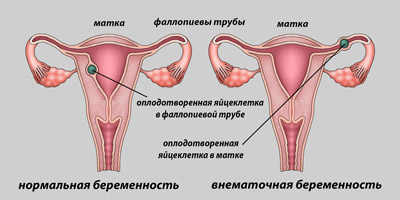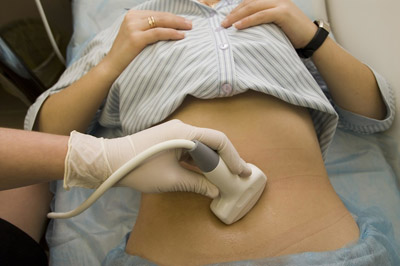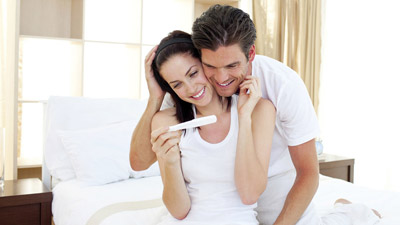 Today the IVF procedure is the most effective method of treating infertility in patients of different ages. As you know, with this method of artificial insemination, cells are fused in a test tube, and an already fertilized cell, that is, an embryo, is implanted into the uterus. During this procedure, the birth of twins or even triplets is a frequent occurrence. This happens due to the fact that not one, but several eggs are implanted into the uterus.
Today the IVF procedure is the most effective method of treating infertility in patients of different ages. As you know, with this method of artificial insemination, cells are fused in a test tube, and an already fertilized cell, that is, an embryo, is implanted into the uterus. During this procedure, the birth of twins or even triplets is a frequent occurrence. This happens due to the fact that not one, but several eggs are implanted into the uterus.
Modern technologies allow this procedure to be carried out with the least risk. If the procedure is carried out correctly by the doctor, the embryo is attached to the mucous membrane of the uterus, that is, it is implanted. But sometimes it also happens that a fertilized egg can move to some other position that is not normal for it. It can be the testicle, the fallopian tube, or even the abdominal cavity. In such cases, an ectopic pregnancy is diagnosed. In this article, we will look at the symptoms of how to recognize this and help the patient.
In 95% of cases, an ectopic pregnancy is observed when the embryo is attached to the fallopian tube. This can happen due to a number of factors. One of these is the presence of uterine contraceptives, spirals. But it can also be the result of diseases such as genital endometriosis or inflammatory processes. If the patient after IVF is in a state of constant stress, then this can also lead to unwanted migration of a fertilized egg and cause an ectopic pregnancy.
What are the symptoms of an ectopic pregnancy: 
- severe pain in the lower abdomen;
- profuse discharge with blood;
- migration of pain to the abdomen or across;
- a sharp drop in blood pressure, heart palpitations;
- pallor, severe sweating, dizziness, fainting.
Often, patients can confuse the symptoms of an ectopic pregnancy with the onset of menstruation. After all, as indicated, discharge and pain in the lower abdomen are observed. In this case, a pregnancy test is required. And if it turns out to be positive, then you need to seek help from a specialist.
When such symptoms appear, it is necessary to urgently consult a gynecologist, since no self-medication will be effective in this situation. To save the patient's life, it is necessary to perform surgical operations. Sometimes it is possible to use medication. That is, after the consultation, the doctor can prescribe a set of drugs that will impede the growth of the embryo.
With an ectopic pregnancy, it is possible to protect the fallopian tube from removal. For this, it is necessary to start treatment as early as possible. But if the situation is critical, the fallopian tube must be removed surgically.
After that, it is not recommended to plan a pregnancy for the next six months. But it is also necessary to undergo a course of restorative therapy. This includes physical therapy and specialized medications.

How to avoid ectopic pregnancy after IVF
In order to avoid the occurrence of an ectopic pregnancy after IVF, it is necessary to strictly adhere to the instructions of the doctor. In particular, this concerns compliance with bed rest after IVF. According to statistics, the incidence of ectopic pregnancy after IVF is 2%. If we compare this indicator with that which occurs during natural fertilization, we note that in the latter case the risk will be on average 20%. But frequent stress and tension can increase the risks.
The paradox is that, despite the fact that the egg is injected directly into the uterus, it can migrate. Sometimes, in order to avoid the risks of ectopic pregnancy before IVF, they immediately resort to removing the fallopian tubes. Moreover, in order to reduce the risks in many countries, the procedure for removing the fallopian tubes before artificial insemination is mandatory. Another way to reduce risks is to practice injecting as few embryos as possible into the uterus. This avoids not only ectopic pregnancy, but also multiple pregnancies.
An ectopic pregnancy can be diagnosed in the third or fourth weeks. In this case, you must first donate blood for analysis. They are necessary in order to determine the presence of hormones in the blood that are secreted by the placenta during pregnancy. But an ultrasound examination will also be needed. The earlier the patient turns to a specialist for a comprehensive examination, the lower the risks of avoiding the removal of the uterus. Therefore, when the first signs of an ectopic pregnancy appear after IVF, mentioned above, you should immediately contact your gynecologist.
Next, we will figure out why there may be an ectopic pregnancy after the IVF procedure:
- the cause may be stimulation of the ovaries, which is carried out before the procedure itself. For stimulation, medication is often used with potent hormonal drugs. They affect the ovaries in such a way that they can greatly increase in size. This, in turn, can harm the fallopian tubes. As a result, the egg, being placed in the uterus, can begin to move in the opposite direction - from the uterus to the wrong position.
- If a woman has previously removed the fallopian tubes, then this can also cause an ectopic pregnancy. It would seem impossible, but even after their removal, small parts of the fallopian tubes may remain in the body, which are still connected to the uterus. Thus, an embryo that has been placed in the uterus can change its position to the wrong one.
The development of an ectopic pregnancy is primarily unsafe for a woman's body. Since this diagnosis can lead to rupture of the fallopian tube. Therefore, when the first signs appear, it is necessary to contact a specialist, who, in turn, after analysis and confirmation of the diagnosis, will carry out an urgent operation. That is why, after IVF, the patient should be under the close supervision of doctors. This will avoid such a diagnosis. If complications develop, they can be stopped in time, avoiding death.
About the phenomenon of heterotopic pregnancy
The answer to the frequent question of patients, whether there can be an ectopic pregnancy after IVF, is that such cases occur in medical practice, but careful monitoring of well-being and a timely visit to the gynecologist will help to avoid the most negative consequences.
A frequent occurrence that can be observed in patients after IVF is heterotopic pregnancy. This implies a simultaneous uterine and ectopic pregnancy. When determining this diagnosis, doctors most often advise the removal of the fallopian tube, in which an ectopic pregnancy has developed. The advantage of this approach is that there is still a chance to maintain a uterine pregnancy.
By contacting our clinic for an IVF procedure, you will be sure that you trust your health to professionals. Thanks to many years of experience in carrying out this procedure, many patients can feel the joy of motherhood without worrying about possible problems and complications. Each patient is guaranteed an individual approach and comfortable conditions. For a detailed consultation, you can make an appointment at the clinic, choosing a place convenient for you.
